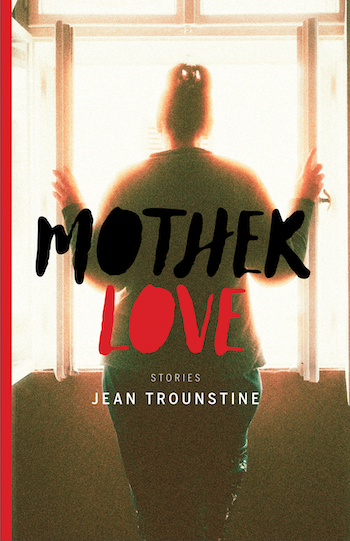Book Review: “Motherlove” — The Desperations of Incarceration
By Bill Littlefield
Jean Trounstine’s experience enables her to present convincingly the desperate circumstances of people whose family members have been arrested and incarcerated, sometimes legitimately, often not.
Motherlove by Jean Trounstine, Concord Free Press, 191 pages.
 Jean Trounstine has taught classes for incarcerated students and students on probation for many years. She has directed plays in which incarcerated women have acted and she is the author of Shakespeare Behind Bars: The Power of Drama in a Women’s Prison. She has become well acquainted with the ways in which the incarceration of an individual disrupts the lives of that individual’s family members.
Jean Trounstine has taught classes for incarcerated students and students on probation for many years. She has directed plays in which incarcerated women have acted and she is the author of Shakespeare Behind Bars: The Power of Drama in a Women’s Prison. She has become well acquainted with the ways in which the incarceration of an individual disrupts the lives of that individual’s family members.
[Full disclosure: Jean Trounstine was one of the people who invited me to work with men on parole in a program titled Changing Lives Through Literature, and I have known her for several years.]
The stories in Motherlove all involve mothers doing their best under terrible circumstances, one of which is having at least one child in prison. In various ways, these mothers are all “navigating the scales of uneven American justice,” as one character puts it. Their lives are further complicated by various circumstances common to the most disadvantaged among us. In their daily lives, the margin for error is thin to non-existent. A mother who takes time off work to visit her incarcerated son may lose her job as a result of her absence. Another has a husband in jail for selling drugs. She gets a call indicating that her young son has been arrested for stabbing a classmate. She learns how the TV news has sensationalized the incident while she waits to see the doctor who will insist that she must have an operation very soon. That story ends with the woman believing against reason and precedent that “if she saved herself, she could save her son.”
In another story, a Cambodian woman is sometimes able to escape the challenges of her family’s poverty and misfortune by dreaming of her homeland at the movies. She and her family have come to the U.S. because “everyone had said they would finally be free,” but her daughter has been incarcerated after killing the man who raped her. The family’s only chance at justice rests on the efforts of an attorney “who has spent her career fighting for women’s rights,” and who believes she may secure the incarcerated woman a new trial based on the “willful neglect” of her court-appointed attorney to bring up the extenuating circumstances that led to the murder.
The stories in Motherlove do not lack for drama, but it doesn’t feel like drama is the point. Trounstine’s experience enables her to present convincingly the desperate circumstances of people whose family members have been arrested and incarcerated, sometimes legitimately, often not. Prison makes the poor more poor. Incarceration often cripples the lives not only of those serving time, but of those who love them and have depended on them. Justice and reason are often casualties of the process which leads to incarceration, a mechanism which often operates more like an assembly line set on autopilot than a rational process based on law and meant to include compassion. As Trounstine points out, prison is designed not only to keep the incarcerated in, but to keep others not only out, but also ignorant, frustrated, and desperate. Publicizing these circumstances and various other wretched conditions and consequences common to folks with incarcerated family members is a worthy effort, and Trounstine is to be applauded for her work.
Motherlove is published by Concord Free Press, which gives away the books it produces and urges those who come into possession of its books “to support a charity, help someone in need…and pass this book along (for free, of course) so the giving keeps going.” It’s a business model especially unlikely these days, given the state of book publishing, but Motherlove feels like the right kind of book for the press to embrace.
Bill Littlefield works with the Emerson Prison Initiative, helping incarcerated men to pursue a college degree. His most recent novel is Mercy (Black Rose Writing).
